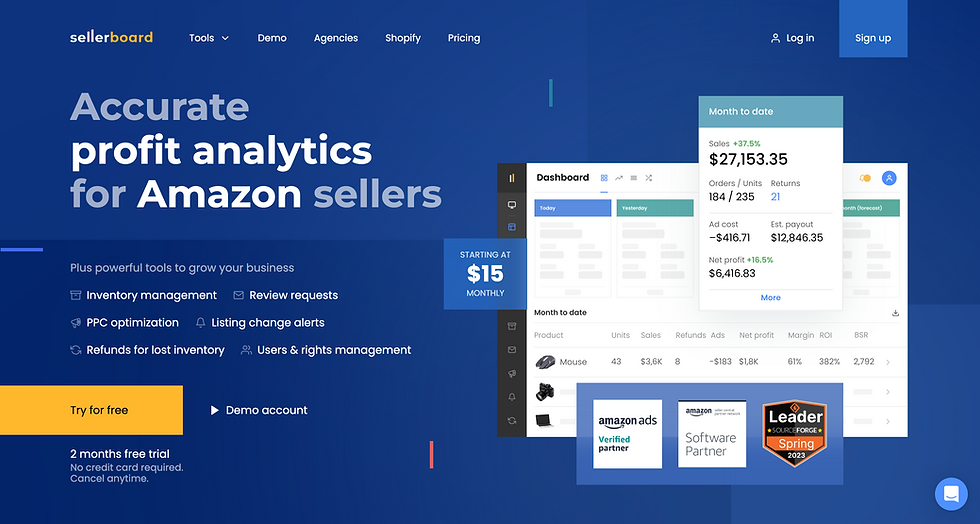Amazon Company Structure - Sole Trader vs Limited Company: Which is best for Amazon FBA?
- The Amazon Guys
- Feb 10, 2024
- 3 min read
Updated: Feb 26, 2024
Embarking on the Amazon FBA journey in the UK? Choosing the right business structure is crucial. In this guide, we'll dissect the nuances between being a sole trader and forming a limited (LTD) company, shedding light on the advantages and disadvantages of each. Stick around as we explore the tax implications and reveal a seamless way to set up your LTD company with our trusted partner, Osome.

What is the difference between a sole trader and a LTD company?
Understanding the fundamental distinctions sets the stage for informed decision-making. As a sole trader, you are essentially your business, while an LTD company is a separate legal entity, providing a level of separation between personal and business affairs.
What are the advantages and disadvantages of being a sole trader for Amazon FBA?
Advantages:
Simplicity: Easy and quick setup.
Control: Full autonomy over decision-making.
Disadvantages
Liability: Personal assets at risk.
Growth limitations: Potential hurdles in scaling.
What are the advantages and disadvantages of setting up a LTD company for Amazon FBA?
Advantages:
Limited Liability: Personal assets protected.
Tax Efficiency: Potential tax savings.
Credibility: Enhances business reputation.
Disadvantages:
Administrative Requirements: More paperwork and formalities.
Initial Complexity: Setup can seem daunting.
How do you set up a LTD Company for Amazon FBA?
Embarking on the journey of establishing an LTD company may initially seem like a complex endeavour, but fear not – we're here to break it down step by step. This comprehensive guide will equip you with the knowledge needed to navigate the process seamlessly.
Choose a Company Name:
Ensure the name is unique and not already in use by another registered company.
Verify that the chosen name complies with the regulations set by Companies House.
Define Company Structure:
Outline the key players: Identify directors and shareholders within your company.
Clearly define their roles and responsibilities.
Register with Companies House:
Prepare the necessary documents, including the Memorandum of Association and Articles of Association.
Choose the Appropriate SIC Code.
Submit the required paperwork to Companies House either online or by mail.
Pay the registration fee (£12).
Open a Business Bank Account:
Choose a bank that suits your business needs.
Provide the necessary documentation, which may include your certificate of incorporation, proof of identity, and proof of address.
Once the account is open, keep business transactions separate from personal finances.
Tax Registration:
Obtain a Unique Taxpayer Reference (UTR) from HM Revenue & Customs (HMRC).
If your expected turnover exceeds the VAT registration threshold, register for VAT with HMRC.
Familiarise yourself with corporation tax requirements.
For a hassle-free experience, consider working with Osome, our trusted partner, who provides free LTD company setup assistance.
What are the tax implications for Sole Traders vs LTD Companies?
Sole Traders:
Personal Income Tax: Taxed at individual rates.
National Insurance Contributions (NICs): Payable on profits.
LTD Companies:
Corporation Tax: Taxed on profits at a corporate rate.
Dividend Tax: Shareholders pay tax on dividends received.
Choosing between a sole trader and LTD company for your Amazon FBA venture is a pivotal decision. The advantages of an LTD company, such as limited liability and tax efficiency, make it a better option in our option. If you have concerns around the steps it takes to form a LTD company , consider working with our Accounting Partner Osome, who will guide you through the process with their expertise.
Embark on your Amazon FBA journey with confidence – opt for the LTD company structure and partner with Osome for a seamless setup. Your success story awaits!




Comments